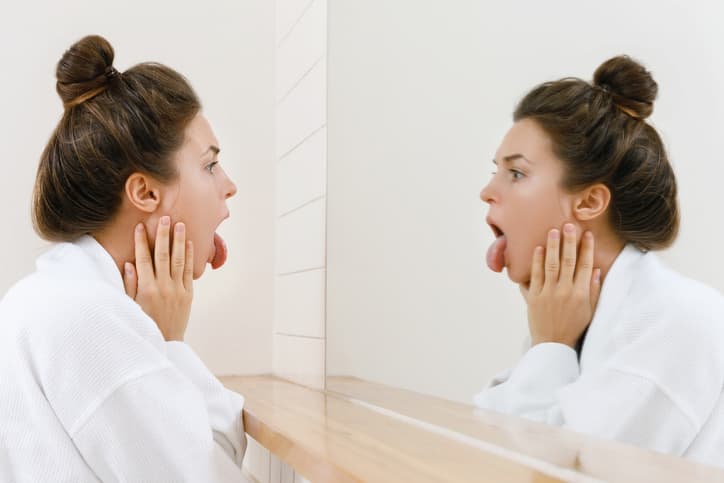 Angular cheilitis is the medical term for a bacterial or fungal infection on the corner of the mouth that causes soreness, inflammation, and cracked skin. The condition affects people of all ages. Home remedies and over-the-counter or physician-prescribed medications help relieve the symptoms.
Angular cheilitis is the medical term for a bacterial or fungal infection on the corner of the mouth that causes soreness, inflammation, and cracked skin. The condition affects people of all ages. Home remedies and over-the-counter or physician-prescribed medications help relieve the symptoms.
Causes of Angular Cheilitis
When saliva builds up in the loose skin on the mouth corners, it creates conditions that are ideal for certain microorganisms. Bacteria and fungi, which are always present but usually harmless, thrive in the moisture and warmth and invade the skin. Some possible causes of Angular Cheilitis are:
- Poorly fitting dentures
- Misaligned bite
- Thumb-sucking
- Lip-smacking
- Antibiotic use
Symptoms of Angular Cheilitis
Candida Yeast and Staphylococcus bacteria are two microorganisms known to cause angular cheilitis, but no matter what causes the infection, symptoms are always similar: the mouth corners turn red and scaly and the skin surface breaks down and cracks, exposing the delicate and sensitive tissue below. The patient finds it painful to open the mouth to eat, drink, yawn, or speak. Every time the wounds break open more saliva seeps in, which prolongs the problem. According to the organizationAngular Cheilitis Help (ACH), without treatment, the condition can take anywhere from a few weeks to a few months to resolve and sometimes progresses into a serious, severe form.
Treatments for Angular Cheilitis
According to the ACH, the most effective treatment for the infection is exposure to strong sunlight and salt water rinses. Bacteria and fungi can’t survive well in bright sunlight, and if combined with salt water, it can destroy them.
Antibiotics can treat cases caused by a bacterial infection and antifungal creams can treat fungal infections. Some infections are both bacterial and fungal, so sometimes a single treatment may not work.
Although cracked skin at the mouth corners is rarely a serious condition, it’s an irritation that can spoil eating, drinking, and speaking. If you’re worried about angular cheilitis, speak to your physician or dentist.
